Making Space for Distance Learning (Part 1)
Can you believe it? It’s almost the end of Summer which means most parents are starting to prepare for (i.e. freak out about) distance learning for their kids. You may be looking at 100% virtual or a hybrid option, but you know you need a plan for some amount of schooling at home. Making a designated space for your kids to learn at home is crucial for their educational growth as well as your parental sanity.
I have two elementary age kids (8 and 6), so we are one of those families rethinking our learning space. The virtual school environment brought a few challenges when we went into quarantine last year. This time around I don’t want to take over the dining room table and I need to give each child enough room with little distraction.
This presented the perfect opportunity to collaborate with our friend and teacher, Meg Siclare from @sparkles_and_pompoms. We spoke to her about what would be some key elements for creating a distance learning space. Meg is a rockstar 3rd grade teacher and online education influencer who teaches at a highly acclaimed school in our area. She is an absolute master at creating an engaging, fun environment in her classroom. Her expertise is so valuable in helping us create a flexible distance learning space that encourages independence and engagement for my kids who are in two different grade levels.

The Conversation
Q: What kind of spaces are needed to have a productive virtual school day?
A: A large enough flat area, desk or table to fit their device and writing paper or workbooks. Rectangular or square is better than round to simulate the school setup. Flexible seating space for reading or relaxing, a calming corner for brain breaks. At home, kids should work 30 minutes to 1 hour tops, then they need to move. Space designing should have a device free, STEAM station (maker space) or challenge cards to help get them thinking.
Q: What is the best way to organize all the school work?
A: For younger kids, a low basket for incomplete and finished work would really help. Create a master schedule with built in brain breaks, snacks, and lunch. Invest in a laminator so you can print calendar and other activity cards. Make crayons, pens, and scissors easily accessible. One set for each child. Create stations like a Library Station and an Early Finisher station (bookshelves or a rolling cart).
Q: What types of classroom decor and educational tools would help to engage students and support their learning?
A: A Calendar or daily schedule, mini anchor charts (quick reference sheets they can refer to all the time), or a clipboard that is right at their level (for word study and math).
Q: Could you see siblings in different grade levels working collaboratively on some assignments? If so, what type of spaces would be beneficial?
A: Yes! You can do brain breaks and snack time together, everyone can read for a few minutes and then share or act out what they read, try writing time with classical music in the background (Vitamin String Quartet), or listen to a podcast for kids (Six Minutes or Story Pirates).
The Inspiration
After our conversation, we began pinning some inspiration rooms to help us see what others have done for an in-home virtual learning space.
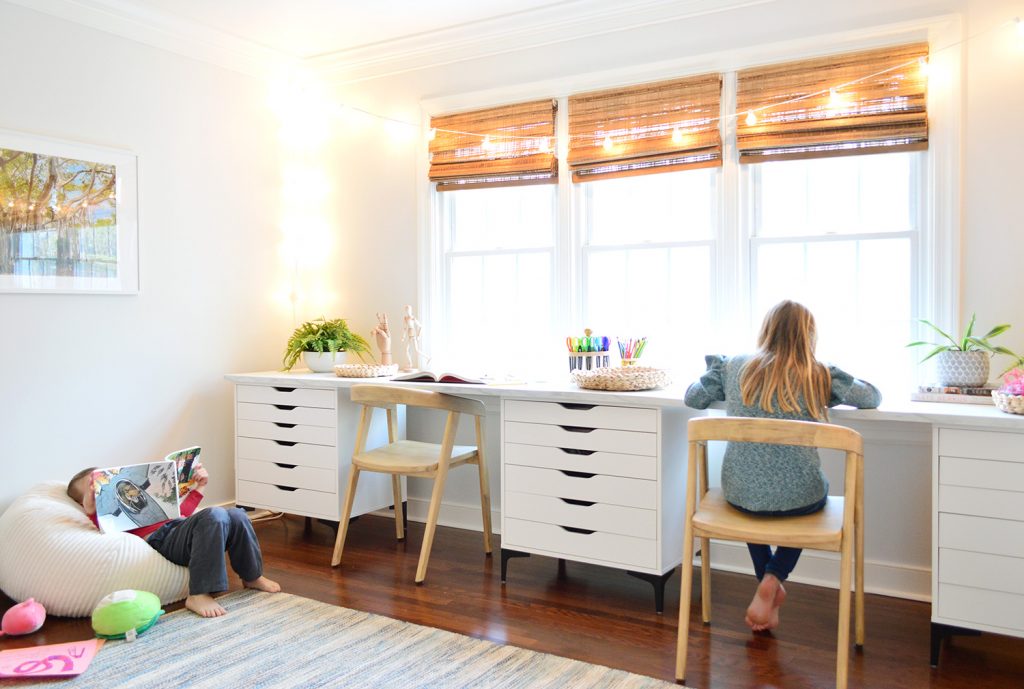 via Young House Love
via Young House Love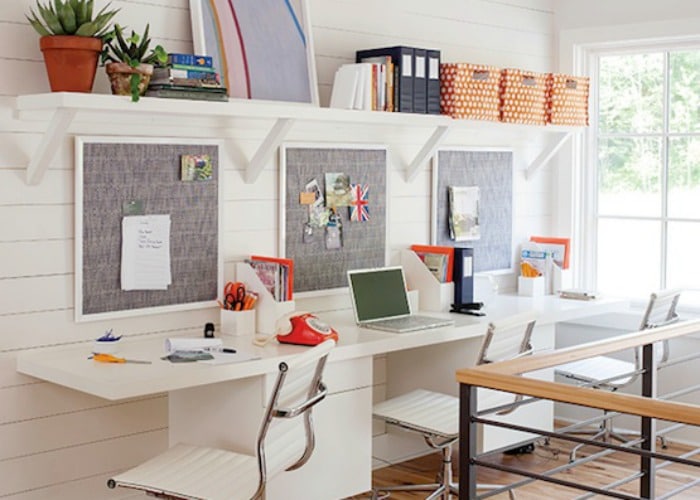 via Somewhat Simple
via Somewhat Simple
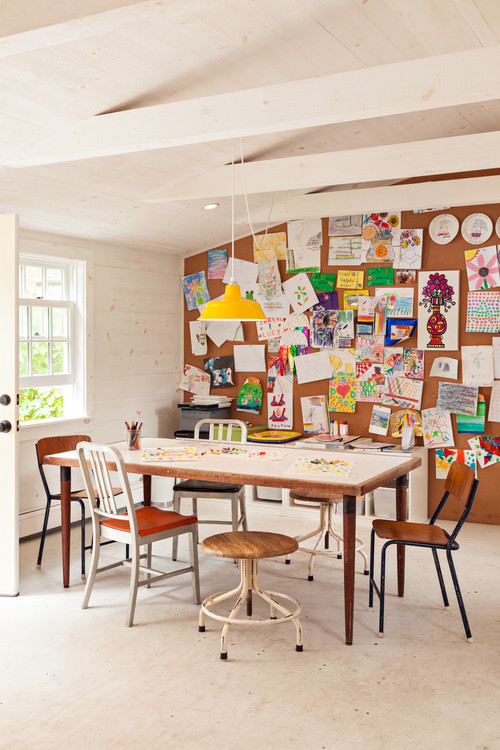 via How to Nest for Less
via How to Nest for Less via Magnolia
via Magnolia
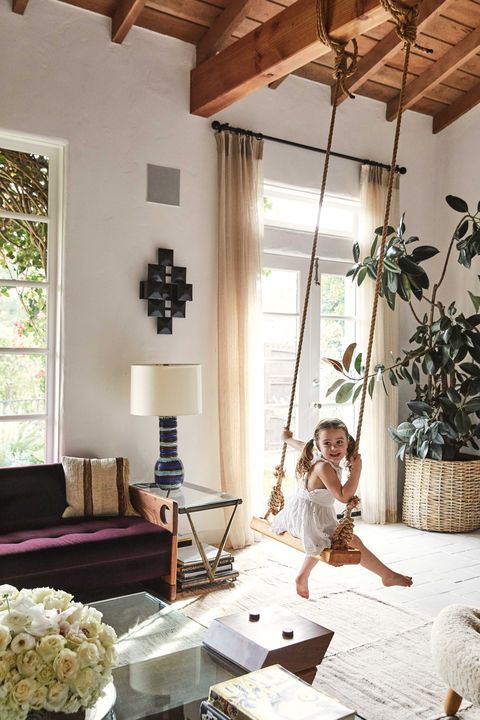 via House Beautiful
via House Beautiful
All of these images, plus our talk with Meg, give us some great ideas to get started designing. Stay tuned for Pt. 2 where we dive into the layout plan and furniture selections for my distance learning basement redesign.
Comment below if you have any questions about your virtual learning space or contact us and we can help you whip yours into shape too.




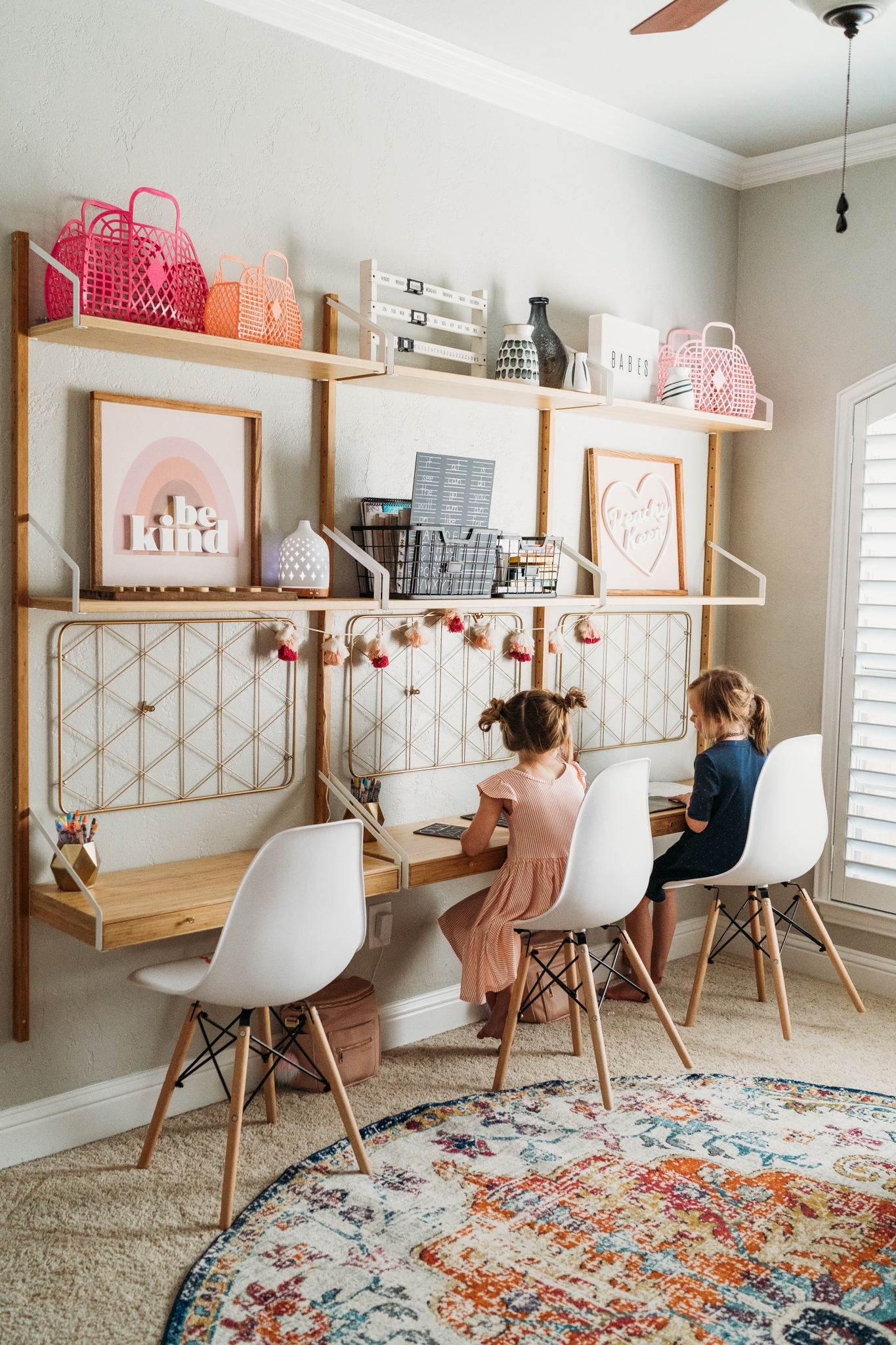 via
via